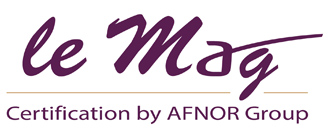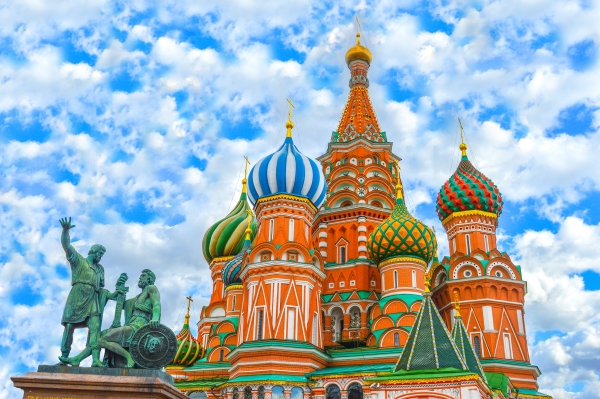Alice Lecureux and Leonid Dvorkin, International Sales Manager at the AFNOR Group and Director of AFNOR Russia respectively, invite all those who are tempted by the Russian adventure to keep an open mind. A new episode in our series on the right advice for doing business abroad, in partnership with the Classe Export magazine.
What sort of welcome can French businesspeople expect to receive in Russia?
Leonid Dvorkin: The French are made to feel very welcome. They receive the valued support of the French Chamber of Commerce and Business France, which organize useful briefing sessions to provide an insight into the country’s context and help unravel the mysteries of Russia’s bureaucracy, which is anything but straightforward.

Leonid Dvorkin, Director of AFNOR Russia ©AFNOR/DR
Alice Lecureux: “See Paris at least once in your life” and “c’est la vie” are widely used expressions in Russia, which shows how the Russians hold the French in high regard. However, they feel as though they are underestimated. The country’s series of protectionist policies are currently hampering business, and people are suffering accordingly. In terms of food and drink, companies are counting on ISO 22000 food safety certification to fill the gaps in imports and create a market for substitute goods. In this respect, the Russians are especially happy to see us do business in their country. One example that comes to mind is Danone, which has since become a household name in Russia. Despite the financial crisis in 1998, the company maintained its investments unlike many other economic players.

Alice Lecureux, International Sales Manager at the AFNOR Group – ©AFNOR/DR
Do you have any advice for making a successful first impression?
LD: You should realize that very few Russians speak English or French. Skimping on a professional interpreter would be a mistake. Even so, you should learn a few words in Russian, because it is a sign of consideration and people are sensitive to that. Similarly, if your Russian contact tries speaking French, avoid switching straight over to English. Make the effort of trying to converse with him in French. Until the turn of the 20th century, nearly all of Russia’s nobility spoke fluent French, which is a source of pride
AL: When it comes to behaviour, bear in mind that Russians may initially seem distant. But once the ice has been broken, solid relationships can be established. Also remember that the chain of command is considered to be extremely important in major organizations, and decisions tend to follow a long and fastidious validation process. But afterwards, Russians want things to happen quickly. The French may be daunted by such energy and wonder whether they will be able to keep up. In which case, I would advise you to explain your way of working and provide reassurances to prevent your contacts from thinking that you do not trust them or are incapable of fulfilling their needs.
What are the other types of business etiquette in Russia?
LD: No vodka means no work. Therefore, you had best avoid drinking anything before you turn up. Being able to hold your drink is an advantage. But when it comes to drinking, you should not necessarily try to keep up with your Russian partner. Fortunately, more and more people drink wine in Russia, which makes life easier when you are “out of practice”! Stereotypes aside, I would say that you should try to create a friendly atmosphere, and Russians appreciate receiving a small gift from their visitors. That is how they do things in Russia, so it is best to do likewise. A word of warning though, since “friendly” should not be mistaken for “familiarity”. People are not necessarily ready to be overfamiliar at first, so it is best to address them by their first name and surname, and a sense of hierarchy is very important.
AL: I would add that Russians expect the French to be smartly dressed. If you make an effort, you will not disappoint them. Another custom is that French people should not be shocked by how Russians can sometimes be disconcertingly upfront. They are not used to tiptoeing around the issue.
Do you have any suggestions for our readers on how they can develop their business?
AL: I would advise them to focus on the major cities, i.e. those with over a million inhabitants. That is where the main industries can be found. All head offices seem to be based in Moscow. In terms of business, more and more companies are calling on us to certify their manufacturing processes. What they are looking for is to reduce the number of defective parts. Quality, safety and the environment are therefore important issues.
LD: The same is true of the food and drink industry, where clients ask us to check that their providers are delivering services that conform to their specifications. More generally, I would say that energy and sustainable development certification schemes are beginning to attract growing interest. Russians are not yet alert to the issue of energy efficiency unlike Western Europe, which means that there are also opportunities for developing business in this area.





